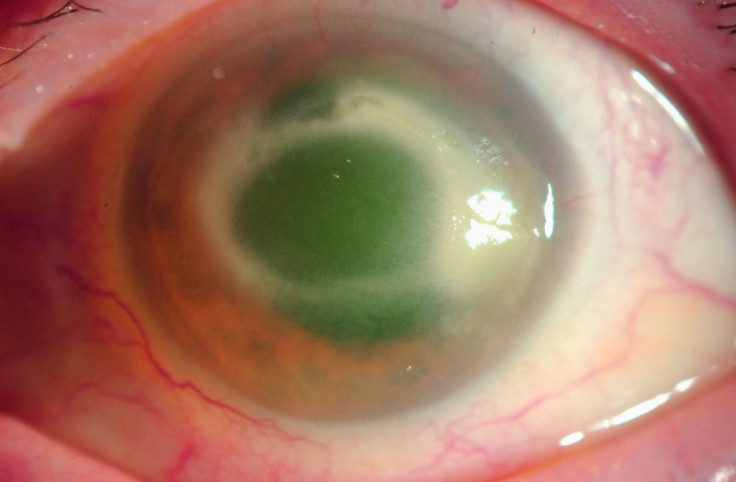Eye-Eating Amoeba Causes Blindness in Contact Lens Wearers

Contact lens wearers beware: scientists have warned that people who don't clean that lenses properly are at the mercy of a tap water-dwelling bug that can gnaw through eyeballs and cause blindness.
The Acanthamoeba parasite that can be found in tap water, rivers, ponds and lakes can also be found in showers and swimming pools.
Scientists say while few people are aware of the Acanthamoeba parasite, millions of people are at risk from this eye-devouring amoeba, especially contact wearers who fail to thoroughly clean their lenses or keep them in a dirty risk. The parasite, which feeds on bacteria and corneal tissue, sticks to contact lenses and burrows it way through the eye's cornea, often causing acute pain.
While the actual number of infections is small, health experts say that treatment is long, painful and not completely effective. People affected by the parasite are often admitted to the hospital and require round-the clock administration of disinfecting eye drops, and in more severe cases, a corneal transplant may be needed.
However, scientists warned that in the most serious cases, the parasite has tunneled so far into the eye that it cannot be removed and blindness results. "It is a potential problem for every single contact lens wearer," Fiona Henriquez, of the University of the West of Scotland, said, according to Daily Mail.
Scientists said that the tiny single-celled parasite feeds on bacteria found on dirty contact lenses and cases, and when the lens in inserted onto the eye, it will start to gnaw and breed its way through the outer layer of the eyeball. Symptoms of the parasite include itchy and watery eyes, blurred vision, sensitivity to light, swelling of the upper eyelid and severe pain.
Optician Graeme Stevenson said that vision can be permanently damaged within a week, according to Daily Mail.
"Generally it leaves you with scarring. Your cornea is your window on life and if the infection penetrates in towards the third layer you are left with scarring, with a kind of frosty windscreen," he said. Stevenson added that about 75 infections happen in the UK each year, and they often occur because people don't follow instructions given by their opticians.
"Usually a lot of it is non-compliance. It's patients rinsing their case out in tap water or rinsing their lenses out in tap water. Potentially something as simple as swimming or showering while wearing their lenses increases the risk significantly," Stevenson said. Experts say that that people can protect themselves from the bug by keeping their lenses and cases clean and by changing their cases regularly.
Published by Medicaldaily.com



























